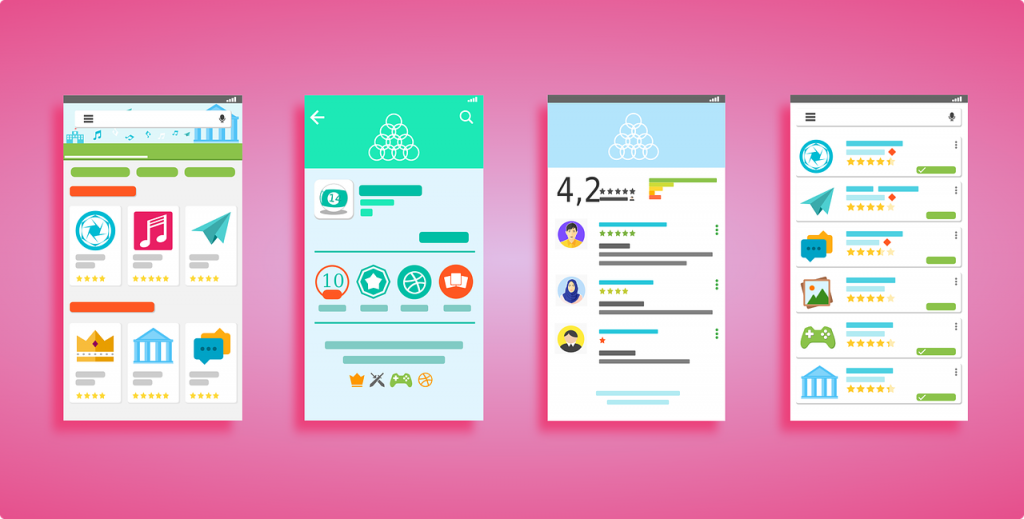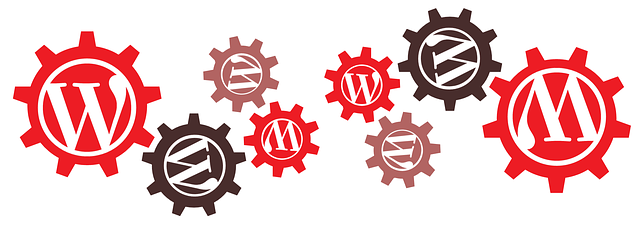When you’re working on a web project
For when you’re looking for a ‘web designer’
As I continue to work with a lot of people who start up web projects or ideas, or home businesses or maybe want to take what they do to the next level, I’m often lucky enough that they come to me and ask for help.

Web Design….one of those sectors & industries that’s changed & flexed over the years from being a black art, closely guarded and often overpriced, to a saturated market of DIY solutions allowing people to build their own websites (albeit somewhat badly). There is such a little barrier to entry now when it comes to web design literally anyone can have a go. And that’s no bad thing. Tools are cheap and plentiful, the internet contains infinite guides & walk-throughs, and computers have become throw-away items so there’s really no better time to have a go yourself first.
I’m happy to quote work for anyone, whether you have £200 or £200,000 to spend (and I work at both ends of the scale) but the more people I talk to, the more reason I see to give just some plain simple good advice, if you’re looking for a web developer & don’t know where to start.
Know your project
Before you can task anyone else to put your project or idea together you need to be able to articulate it. You’ll need to learn a bit of a new language to be able to describe how you want your visitors, users or customers to interact with your product or service. Think about things from your customer’s point of view, and one of the biggest pieces of advice I can give anyone here is to draw things – ideas, layouts, and graphics, just draw them out. A picture can speak a thousand words. If you can’t summarize what you’re trying to do in two sentences, in a language my mum would understand, you’re doing it wrong.

Know your disciplines
Be careful when employing someone to build you a website. Often, the disciplines (read here) for each component of the project can be very different & very few people are a master of all. A graphic artist or branding expert is very different to someone who does user interface design or programming. And remember, there’s different flavors of programming too, so get to know the difference between front end and back end, have a think about what you’re trying to achieve, and find the right people to do the right work.
Know your budget
Be honest with yourself about budget. Stack that against what you are trying to achieve and you’ll find a baseline of feasibility which usually dictates what you’ll actually be able to do or not. If you’ve only got £500 to spend, you’re realistically not going to be able to afford multiple people for each discipline, and you’re also going to have to make some compromises. This is a tough pill to swallow. However, a larger budget doesn’t always mean an easier time, & you should be extra careful if you have a large budget to spend, because you’ll want to make sure your money is being spent appropriately & you get the result you want. Don’t try & manipulate a designer or developer into doing more work for your money than the budget realistically allows, you’ll only end up with a bad relationship, a poor compromised project & a bitter taste in your mouth about the industry.

Date your developer
Finding a web designer is much like going on a date. Everyone does it slightly differently & you’ll need to build up a rapport and relationship with this person who’s helping you with your vision. Web design can often be a race-to-the-bottom when it comes to quality, with everyone under cutting one another, and only you can decide your appetite when it comes to how much ‘bang’ for your buck you want. For simple projects, you can take more risks & do away with contracts & paperwork’s, maybe even take advantage of cheap off-shore development, but for larger projects you’ll want maybe a more professional interaction with someone. Go on those dates, speak over the phone or ideally in person (not email or message) and really get a feel & vibe for the person you want to work with. Remember, just as much as there’s nightmare stories of bad web designers, there’s also equal amounts of clients from hell, so it’s your responsibility to pair yourself up with someone who ‘gets you’ & truly understands what you’re trying to achieve. Often, you’re better off matching yourself with someone you get on with than someone who may have all the skills, but doesn’t have the same attitude or approach as you.
Know the industry
Spend a bit of time learning about the different levels of both quality & professionalism you can get from the sector, and know who you’re dealing with. There’s a lot of great bedroom developers who are looking for opportunities and work and this may be an opportunity to grab them whilst they are cheap *but* don’t expect them to be on top of any legal contracts, terms & conditions or anything which represents project management or prototyping. At the other end of the scale, dealing with semi-professional or professional two-three man band outfits who have been doing it for years may give you a better sense of reassurance but you may find yourself having to deal with work flows (such as prototyping), or project management processes maybe you don’t want. Look for someone who can flex their service to meet your needs.
Measure twice (three times) cut once.
There’s really (in my mind) two ways of approaching achieving your idea online. You can either be agile, in that you (to save costs) you spitball your ideal, hope the person you are working with ‘gets it’ and you build on-the-fly going straight to development and getting to something onscreen as quickly as possible. I work like this quite often, but it’s only through experience that I can gauge the likelihood of my success 1st time. If I feel the project is complicated or I feel you need a level of safe guarding as a client, you’ll often find me (and any other similar professional) offering a prototyping stage. Prototyping is a way of presenting a working solution but at low-fidelity, to give you an ‘idea’ before we start building. However, typically just as much work goes into this prototype as does the build (think of it a bit like an Architect drawing up plans for your new house before the builder starts building it) so you’ll need to pay for this, but it can be a worthwhile investment.

Get your documents right
Again, you can decide the level of diligence you want in your project, at minimum I’d recommend projects over £1000 should always have;
- Full scopes of work
- Technical & functional specifications
- Detailed estimates
- Some prototyping & demos
- Some project management
Again, the more money you spend, I’d recommend considering dealing with a company or individual(s) who are going to be a bit more switched on with this level of diligence as you’re going to need it.
Importantly though, *you* decide how you want to work. What you can’t do, is spend £500 and expect a £20,000 solution – that just doesn’t work.

So now I wanted to move into considerations if you’re going to use WordPress as a solution. WordPress is common because it’s cheap, flexible and easy to develop on. Like everything it’s not perfect but it can suit a lot of needs if implemented correctly. Here’s the skinny;
Considerations for Bloggers using WordPress as a platform.
I deal with bloggers day in, day out. Bloggers are people who run these blogs on the side of their busy life’s and potentially earning a small but contributing second income to their ‘day job’ with things such as affiliate posts, guest posts, advertising & such like. Further, they may even be full time bloggers and their only source of income is their blog.
Subsequently, people’s blogs are something I take very seriously.
Over the last year or so, I’ve worked on twenty or so blogs on behalf of people and I see very common issues arising time & time again – so I wanted to outline those, the things YOU need to think about when you’re using WordPress for your blog.
WordPress is a great platform.
WordPress is fantastic, and offers a whole raft of easy to use features baked in making it accessible, useful and powerful. It powers 25%+ of all Internet sites, and whilst there’s a heap of other CMS’s available which offer similar/better/different features WordPress remains the ‘go to’ for most people.
http://marketingland.com/wordpress-used-on-25-percent-of-all-websites-report-151115
Here’s the rub though, to get the best out of WordPress, you need to understand how it works and typically most people will just want quick and easy – fire up a WordPress site, install a theme and then start chucking out content. It’s only when your favourite web-slingin’ developer gets involved that there’s problems to resolve from the ‘how to migrate my posts’, to ‘why is my media library full?’ or my personal favourite, the ‘ever expanding plugin tree destined to fall over’.
So read on for a few key points you need to get your head around when using WordPress. Want to read more about WordPress, check out my other blog articles here & here. There’s also a bunch of training videos here

It’s a database – it’s just a database
All your posts, all your content, your images, links, themes, everything, it just sits in various tables in a database which make up the WordPress site. Think of your site like a giant database and consider that each post points to images via a URL. Each post is linked to via a URL and the overall URL structure is governed globally. Make a change somewhere & things break (like when you move your website from one domain to another)
Plugins are not the quick win you think they are.
Plugins can be great – they offer turn-key functionality for users who maybe don’t have the development skills to do things such as a contact forms, or maps, or page formats. BUT with each plugin installed, you introduce a potential point of failure with the next round of WordPress updates. Plugins live in a world that’s fairly unregulated and can be developed well or badly, leaving you with a very messy website. Keep plugin’s to a minimum where you can, and only use those from reputable sources (look for a thriving support forum, regular updates and English speaking developers). THINK – Do you really need this plugin?
Security
As mentioned in an earlier point above, WordPress powers a hell of a lot of websites. Subsequently they are massive attack vectors for hackers and other ne’er do wells so make an effort to use secure passwords, utilize catchpha’s on contact forms and make sure you have backups of both the site, the database & the various themes & plugins.

Disk space & hosting
I see more and more people pushing staggering amounts of content through WordPress and expecting the database and hosting to cope. Typically they’d of selected WordPress because it’s cheap (sometimes free) and comes with free or low cost hosting. Remember though, every time you add a post, or image, or media file you are increasing disk space not only for the site, but when it comes to moving that site it makes things much more difficult. I recently worked on a WordPress website over 10GB due to unoptimized images & a badly thought out content structure.
Your website will be governed and limited by the rules of Database language, (usually SQL) so file size upload limits and performance limits will be quickly met if you’re not doing best practice stuff such as optimising images, using remote media libraries or not compressing your stuff. Make sure your hosting provider offers you PHPMYadmin, (the GUI interface for managing your databases) to allow your web developer to effectively manage your databases and get backups.
Optimise, Compress, and Offshore
If you’re website is media heavy, consider hosting your images in a remote folder outside of the WordPress install at a URL which won’t change. When it comes to migrating your site from one place to another, you won’t have that issue of missing images or broken links because the images won’t be touched. Plus, any migration won’t have to accommodate the images and therefore migration can happen quicker. (It takes longer to move a 10GB site than it does a 350MB site etc)
Long term thinking
Think about the future now, if you can. Are you likely to want to move this site in future? Does your hosting provider support the plugins which make site migration easy, or will it have to be done manually? Have you optimised all your images to make them as small as possible? Is your rich media (such as Videos & music) hosted on remote libraries or CDN’s such as YouTube?
Things to think about when moving your site.
So let’s run through a check list of the things you’re likely to hit as a blogger, when having a new WordPress site (to replace an old one) or maybe you’re moving an old site to a new hosting provider.
– Have you got all the links for EVERY post that is currently earning you money? By that I mean if people or companies have paid you to review something for example, do you know where these posts are and do you have a plan in place to communicate with them of change? For example, if you reviewed a hair dryer on your website, www.ilovehair.com/hairdryerreview2016.htm and your new site is going to be www.iloveallthehair.com then what’s your plan to keep these URLs valid? Have you raised this with your technical person? (We run a tool called Screaming Frog which audits every outbound link and we compare that with the new site, and can identify URLs which don’t match, we can go in and match them or write rewrite rules in Apache to accommodate this.)
– Do you have all your user accounts usernames and passwords for everything? You’re hosting? Your WordPress website, your SQL databases, Your Google analytics and any third party service you use such as FeedBurner or Skim links? All these may well need to be updated.
– Do you have the original emails & post content in something other than a WordPress post? So are you the type of person that writes & edits straight into the WordPress editor? Then you’re a bad person(!). Only kidding, but you really should have all your posts written in nice neat Word documents and then copy them across to WordPress. That way, if anything goes wrong, you have a backup. You’re now putting a lot of hope and faith in technology & your web guru to migrate your site properly.
– Comments – Comments – Comments
Be careful if your value comes from the comments in your posts. Often moving a WordPress site can strip all the comments if not done correctly. Whilst there’s various tools out there that allow these to be backed up too (they are just part of the database) do remember that years’ worth of comments on each post can be valuable, so ensure your web guy as a plan for these.
Change Freeze
Remember, there’s going to come to a point whereby you will need to stop adding content to your existing site whilst it’s migrated. Otherwise the migrated version will be out of date as it’s copied across without the latest posts. So work with your web guy & decide on a change freeze date, whereby you won’t add any new content until the sites moved over.
Absolute/Relative URLs
If you are linking to images & content in your WordPress post by direct URL, you need to think about the fact these may break if the underpinning link structure is being changed. This problem increases exponentially the more posts you have. You will have to go through each post & understand what is linked to absolutely, (in that there’s a definitive path to an image or resource) and what is relative. You can learn more about this subject here. https://kb.iu.edu/d/abwp
And finally
There’s a really great guide which goes into a lot more detail in terms of migrating your wordpress website, and you can read it here https://www.quicksprout.com/2015/09/16/the-simple-guide-to-moving-your-wordpress-site-to-a-new-domain/




